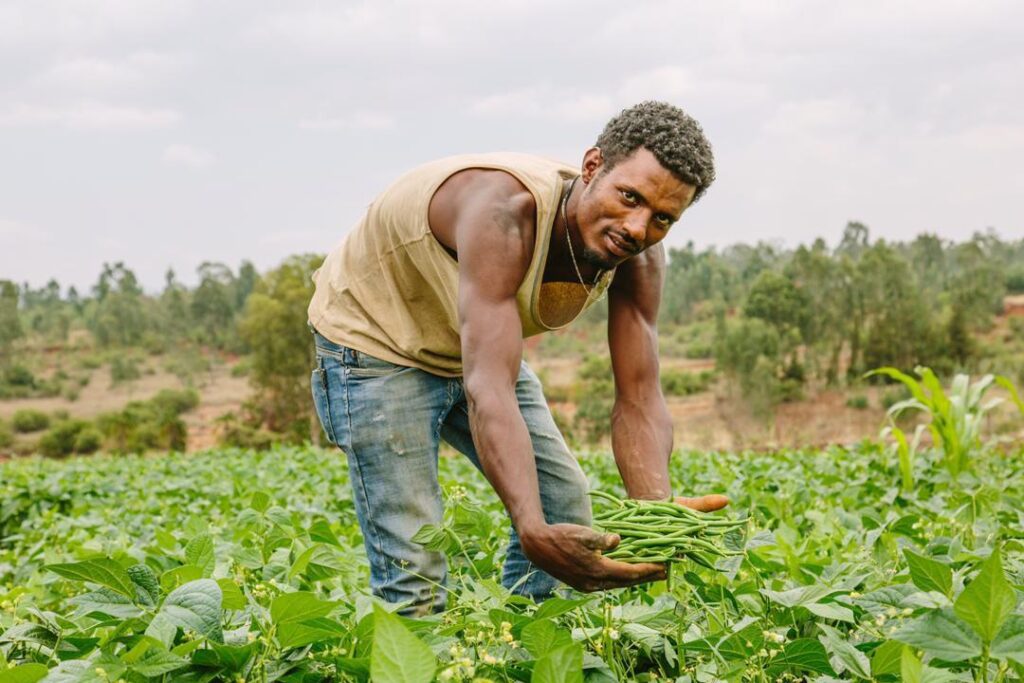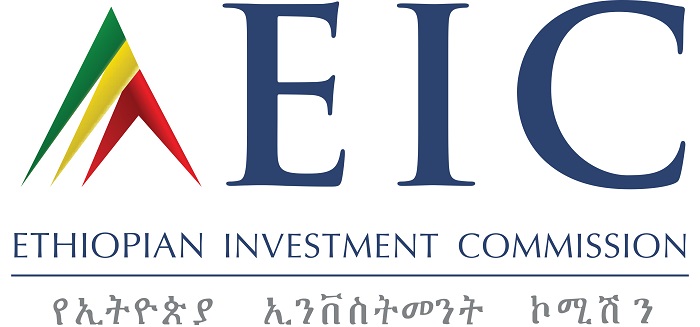biggest producer of wheat in Africa
largest producer of tropical fruits in Africa
largest livestock population globally
largest producer of sesame globally
in chicken population in Africa
Ethiopia represents an attractive investment opportunity for investors in the Agriculture sector

Ethiopia has a vast agronomically favorable land, conducive climate, water and land resources—these have made us an incredible hub for investing in agriculture. From the total land area of 120 million – population – the second largest market in Africa, 74.3 million – hectare – suitable land for agriculture. We have identified eighteen major agro-ecological zones, making us suitable for diverse agricultural investment opportunities.
The value of investing in agriculture in Ethiopia is further boosted by the strategic locational advantage that Ethiopia provides. We are centrally located in the global economy and have proximity to the key markets in Africa, Middle East and Europe. The geographic proximity provides major global importers unparalleled access to Ethiopian agricultural outputs including coffee, oilseeds, fruits and vegetables and floriculture.
Given its diverse topography and geographical location, Ethiopia is suitable to produce some of the world’s most coveted crops, such as cereals, pulses, oilseeds, a wide range of fruits and vegetables, coffee, tobacco, sugar cane, tea, spices, cotton among others. We are among the world’s largest producers of coffee and the 3rd largest producer of Arabica beans in the world (USDA). We are also the top non-EU exporter of cut-flower to the EU market and the 2nd largest flower exporter in Africa.
Invest in Ethiopia
A ripening market offering
quick win opportunities
Ethiopia has a large and growing unserved market
Investors can engage with diverse opportunities in agriculture and agro-processing sector in Ethiopia including cotton production, livestock, poultry, production of fruits and vegetables, wheat, pulses, animal feed, and more.

Ethiopia will continue to be a regional Agriculture hub in Africa
Ethiopia’s vast land, favorable climate, and water and land resources combine to make it an incredible hub for investment. Located in the horn of Africa, Ethiopia is at the crossroads between Africa, the Middle East, and Europe. Within easy reach of the Horn’s major ports, Ethiopia is close to its traditional markets for export products – the Middle East and Europe. This geographical proximity provides major exporters in the world unparalleled access to the Ethiopian floricultural market.
The Ethiopian market offers various attractive opportunities in the Agriculture space.
Investors can choose a single or multiple, end-to-end investment opportunities.
Crops
Ethiopia offers a strong potential for production of cereals including wheat, rice, maize, and sorghum. The estimated market value of cereals in Ethiopia is over $4.1 billion, and there is huge potential for export. Over 476,821 hectares of land suitable for cultivation of crops has been allocated by different regions and are awaiting investors’ engagement.
Livestock
Ethiopia presents an immense potential for livestock rearing and processing of dairy and meat products. Per capita consumption of milk is 19 liters/year, one of the lowest in sub-Saharan, indicating the potential to engage in improving productivity of cattle and increase supply. Demand for red meat is increasing by 7% annually, and due to organicity, Ethiopian meat is highly demand in the international market.
Poultry
Ethiopia has one of the largest chicken populations in Africa but is lagging in per capita consumption of eggs and chicken meat—often consuming two to 10-times lower than African peer countries. However, the average low consumption trend in the country is an indication of the considerable potential that the Ethiopian market holds. Urbanization, increasing income and the emerging nutrition-conscious low middle-class communities in Ethiopia are significantly increasing demand for poultry products.
Animal Feed
Demand for animal feed in Ethiopia is growing rapidly and the demand-supply gap in the country is estimated to be over 160,000 tons annually, valued at over $200 million. In addition, Ethiopia is strategically located to effectively compete in the $2.9 billion animal feed market in East and North Africa, which is dominated by imports from Europe. Our proximity to these markets allows investors to become a low-cost supplier in the global market.
Fruits and Vegetables
Growing global demand for fruits and vegetables have made Ethiopia an ideal destination for such kind of investments. In addition, Ethiopia presents a suitable climate conditions and massive land for cultivating a variety of fruits and vegetables including banana, avocado, mango, potatoes and tomatoes. Due to increasing consumption and the growing industrialization, local demand is also growing by 30% annually, which provides investors the opportunity to become a leading supplier of organic produce.
Pulses
The local market for production and distribution of pulses is estimated to be over $831 million and is growing by 5% annually. There is 94,503 hectares of land suitable for production of pulses including faba beans, field peas, chick-peas, grass peas and soya.
Cotton
There is 562,757 ha of land suitable for cotton production in Ethiopia.
Paving the way for investors
The Government of Ethiopia is highly committed to sustainably increasing investments in agriculture. Increasing agricultural outputs is the key to meeting growing demand for food and inputs for industries. In addition, as the sector promises potential foreign currency earnings, it is considered a priority sector for development. The government has been investing in infrastructure, institutional reforms, inclusive markets, and innovation and extension services while creating an enabling environment for private sector investment.

Get In Touch
information and assistance and answer your questions.
